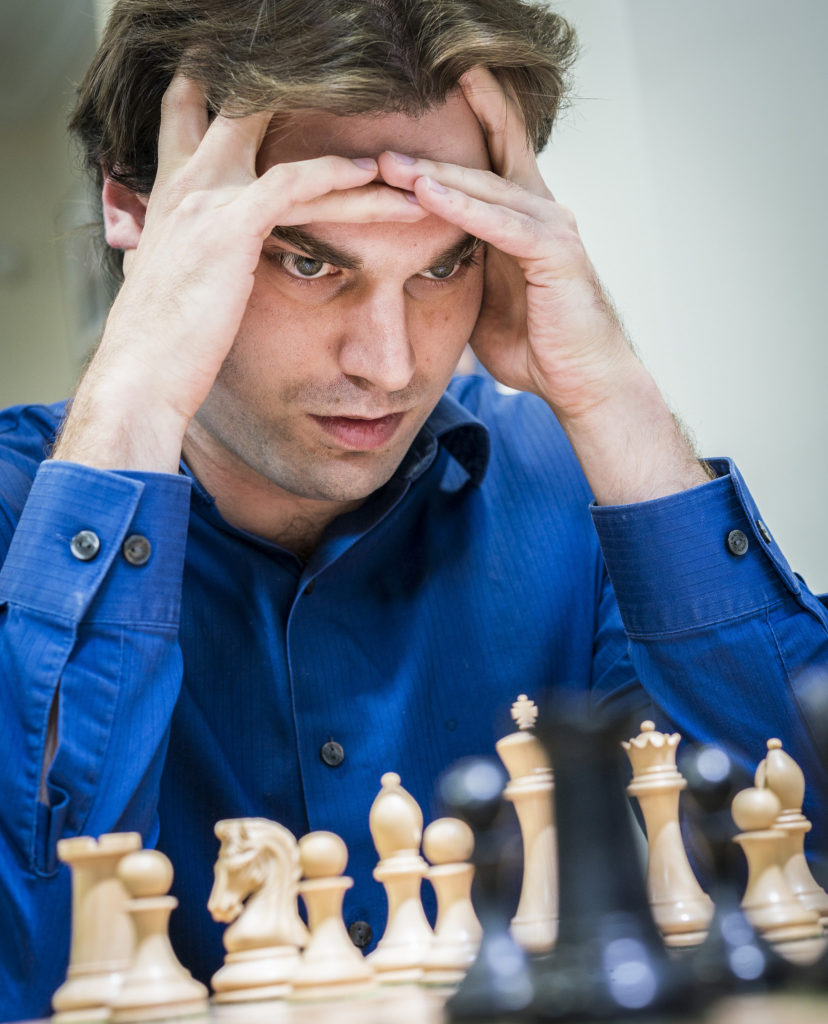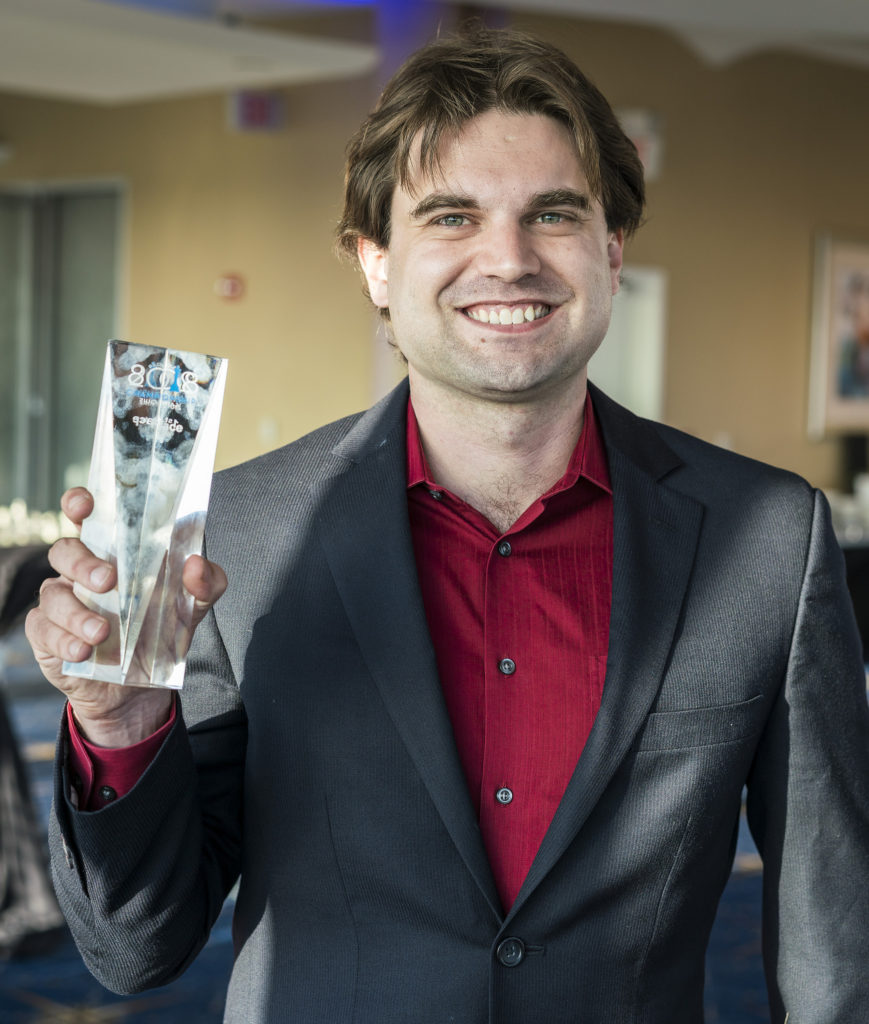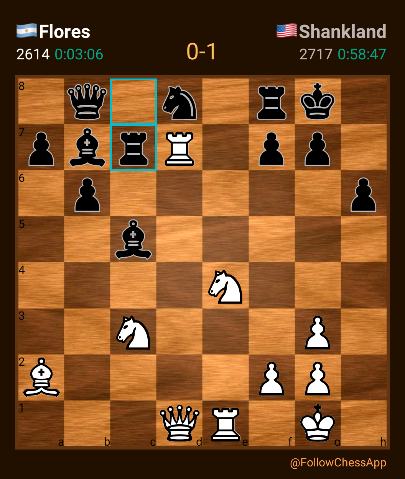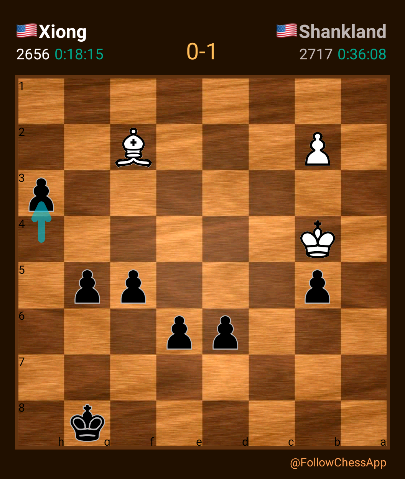Winning the US Championship ahead of Caruana, Nakamura and Wesley So is a fantastic achievement in itself. But when this feat is followed by a dominant triumph at the Capablanca Memorial and a crucial victory at the American Continental within a space of two months, any number of adjectives fall short of describing it! Such has been the performance of Samuel Shankland, who has gone through these tournaments undefeated and has boosted his rating from 2671 to a career-best 2727, which makes him number 27 in the world.
We caught up with Sam post his wonderful run. In this interview, the American GM sheds light on each of his three victories, while also providing an insight into his recently released book and his association with Jacob Aagard. Finally, he imparts a crucial lesson in goal-setting that applies not just to chess but to all walks of life.

Shubham Kumthekar: The last couple of months have been outstanding for you. What are your general feelings on winning three strong tournaments (US Championship, Capablanca Memorial, and American Continental) on the trot?
Samuel Shankland: Obviously, I am thrilled with my results! I have only been home for a couple of weeks and I have mostly been resting, but I did look over my games a bit and I concluded that I played very well and also got a bit lucky. I will definitely have to work hard in the future if I want to maintain play of this level.
In terms of the competition, the US championship was a huge challenge. Did you have a specific approach going into the event?
I tried to be a bit less direct. I am naturally an aggressive player who thrives in complications, but nowadays, computers have analyzed almost all sharp main-lines out to a draw. I focused most of my preparation on making sure I could get playable positions with Black, and I was pretty content to accept equality with White as long as there was some fight in the position. This is very atypical for me, but it certainly worked well!
It would be intriguing to know what was going on in your mind before the final round of the US Championship, especially considering Fabiano’s recent last round exploits…
I was a little nervous the night before, but the day of the final game (against Awonder Liang), I felt fine. I knew the stakes were high, but I made the conscious decision to not play the game any differently than I would if it were round 1. What I had been doing so far was clearly working, and I thought it would be a bad idea to try and tinker with my approach because the situation was not a normal one. Also, for the first time in the entire tournament, I got a very pleasant advantage with White out of the opening. This eased my nerves a lot.

Then came the comprehensive win at Capablanca Memorial. Did the eventual victory margin of 1.5 points come as a slight surprise?
I was surprised that I managed such a high score, but not surprised that 7.5 would win by a lot. In the previous edition, for example, Sasikiran won with 6.5/10, and then I tied for second with 5.5. If 5.5 is often good enough for second, then one can expect 7.5 to be first by a wide margin.
After playing two long round robins, the action shifted to the American Continental, a Swiss event. How did you successfully deal with an almost immediate change in format?
I got very lucky! I certainly struggled in the beginning and earned some points I did not deserve. I had a very dry and equal endgame in round 2, and in round 4, I was completely lost as early as move 18! I somehow managed to win both games, and after that, I managed to hold things together a bit better. I had a small hiccup against Flores but it went unpunished.

In general, I have a lot of praise for the South Americans I faced – I was expecting to have to fight tooth and nail to get interesting positions, but for the most part they were happy to fight with me, showing no signs of playing for a draw (something I was a little worried about) or of fear of my rating. I think this is the right attitude for success in chess and I expect a lot of South Americans to get stronger in the coming years. It took me some time to find my groove, but I was playing well by the end despite being quite tired.
Which victory out of the three holds the greatest significance for you?
Certainly the US Championship! Every tournament win is a success, but it is a completely different feeling when it comes ahead of three top-10 players. I am proud to be an American and have dreamt of winning the US Championship for as long as I can remember. It’s gotten tougher every year as our young stars get stronger and stronger and more and more strong GMs switch their federations, and it felt amazing to win the toughest one to date.

It has been a splendid run, and there must have been a lot of interesting games. Which are your personal favourites from this period – can you tell us something about them?
There are so many interesting games to choose from! In general, my favourite kind of games are ones where I play well in all phases. If I had to name a few, I really like my wins over Awonder Liang, Aleksandr Rakhmanov, and Jeffrey Xiong. In all these games, I got an edge from the opening and felt that I played very well to maintain it all through the game and eventually win, despite some very stiff resistance from these strong opponents.

Before this purple patch, was there something that you chose to do differently?
I already mentioned trying to be a bit less forcing. I don’t think there was too much else other than that. Most probably, my recent jump is the result of years of hard work paying off. I was stuck in the mid-high 2600s from 2015 through the start of 2018 despite working really hard – perhaps now it’s time to reap the rewards!
Your association with Jacob Aagard is well known in chess circles. What can you tell us about it?
Jacob has been a great coach. I hadn’t had much coaching throughout my life, about 1 hour per week from 1500-2300 or so, and nothing afterwards. He has certainly been instrumental in my development, and I can particularly name calculation as a skill I have really improved while working with him. I still make a lot of errors in sharp positions of course, and I always will, but minimizing them requires constant work.
Your book ‘Small Steps to Giant Improvement’ was recently released. Can you tell us something about it?
‘Small Steps to Giant Improvement’ is a book about pawns, and more specifically about the premise that they do not move backwards. Of course, we all know this as a basic rule, but it has been a topic that I think has been mostly, if not completely, ignored in chess literature. I broke down the five main reasons I believe a pawn may wish to move backwards, but it cannot, and did a chapter on how to avoid each of these unfavourable situations in your own games. I then went back over each reason a second time, with the focus instead on provoking your opponent’s pawns too far forward for their liking. In the end, there is a section on doubled pawns. Pawns don’t move backwards, but they also seldom move sideways!

Did the work you put in for the book play a role in your success?
I am not sure, but it would not surprise me. If nothing else, it was a little break for me from the rigors of normal chess study. Sometimes I think I work a little too hard, and having some forced time off may have helped me re-adjust. Still, it has to be said that my first two events after writing the book produced solid but normal results, and it was only several months later that I caught fire.
And do you plan to write more books? 🙂
Haha, someday perhaps! If I have a couple months off from tournament play at some point, I might write a second volume of ‘Small Steps to Giant Improvement’ that could focus on pawn related topics the first volume ignored, such as passed pawns, isolated pawns, etc.
Going ahead, what are your personal goals and plans?
My goal is to be a World Champion. I will almost certainly fail, but I have always believed that one should set lofty goals and shoot for the stars. Even if you come up short, you would have likely reached the maximum you could as per your capabilities. For example, I would be much happier aiming to be World Champion and peaking at #5 than I would be aiming to make the top 20 and peaking at #20.
Blitzkrieg
Half an hour before a game, you are generally found doing…
Mostly reviewing my lines! I am not prepping anything new at this point but trying to make sure I have memorized everything I needed to for the upcoming game.
Your favourite pastime…
I love sports. I go to the gym every day, and I like to watch games on TV. At the moment, I am following the World Cup pretty religiously. I am rooting for Spain (Ed. – as we post, Spain has been knocked out by Russia), but if I had to guess the winner, I think Belgium has the best chance. It has definitely been a very exciting World Cup so far – some lesser known teams have pulled off big upsets – and anything can happen in the coming elimination rounds.
One country you haven’t visited but would love to visit…
There are so many! If I had to pick one, I would say South Korea. Unfortunately, I don’t know of too many chess tournaments happening there, but maybe I can go there sometime for pleasure.
If not a chess player then…
In all seriousness – and this is probably a pretty uncommon answer among chess players – I think I would have done well in the military. I don’t consider myself a super-talented chess player, and I got to where I am mainly by being very focused and pushing myself as hard as I can to be the best I can be. These are the qualities that, in my opinion, make a good soldier. In another life with a different upbringing, where I first met active duty members and veterans as a kid instead of as an adult, I could easily see myself going to the West Point.
One non-chess celebrity that you look up to…
I really admire Antoine Fuqua. He is my favourite film director by far, and most importantly, I admire his perseverance. Much like myself, he is a late bloomer in his field, not reaching high levels of success as a director until his mid-thirties. In an era of people becoming wildly successful younger and younger (especially in chess!), I find it inspirational to see people who find success later in life. It reminds me that despite being old and decrepit at 26, I can still push myself to reach for levels higher than I have reached so far.
Focus is the watchword!
Very much inspired!